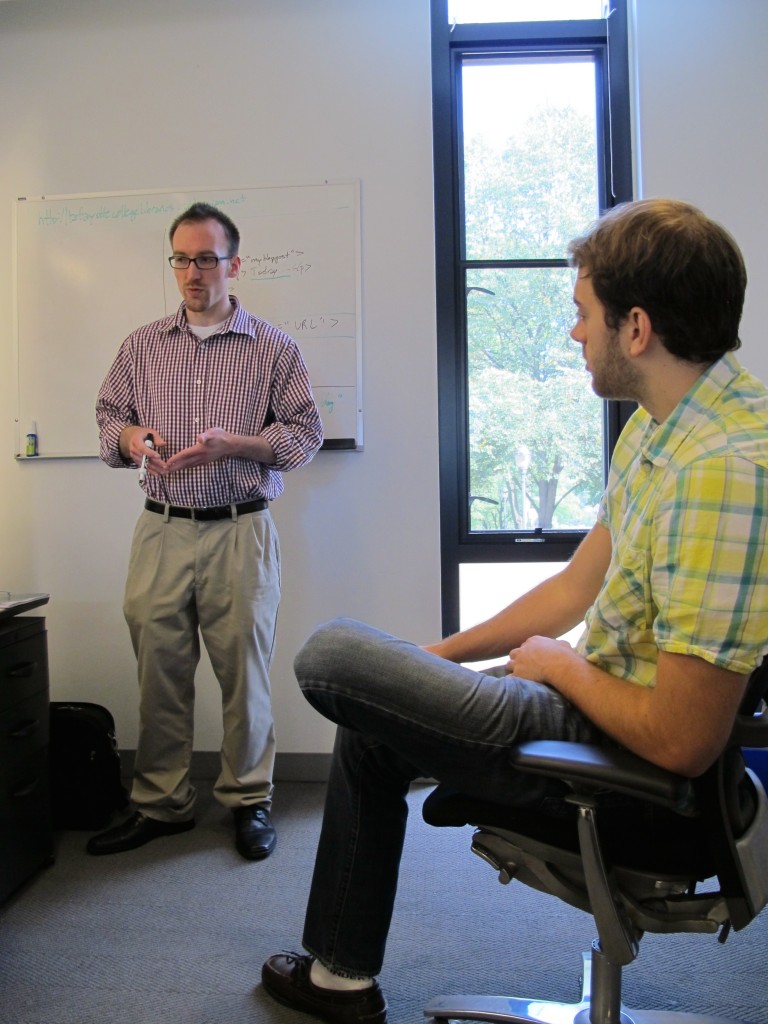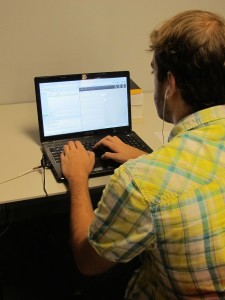Building the Digital Humanities
Engineering student William Stathis interns with DSS
The first time I heard the term “digital humanities” was at a lecture from one of the field’s foremost authorities, Dr. Willard McCarty. He portrayed the field as a mixing of the classical humanities with new analytical technologies – mainly computation. This marriage of the quantitative and the qualitative may, at first, seem somewhat paradoxical. However, by using new analytical techniques and a bit of imagination on the part of both programmers and researchers, one can gain new insights.
Personally, my discovery of this field was a great excitement. As a current student of Electrical and Computer Engineering, I find very few opportunities to do work in history, which has been an interest of mine for years. As fate would have it, the head of Digital Scholarship Services, Eric Luhrs, was at the same lecture. He was looking for a summer intern to work on Digital Humanities collaborations with members of the Lafayette faculty. The internship would allow me, in a practical way, to combine my technical background with my interest in the humanities.
My initial time at DSS was spent learning new programming skills. After about two weeks of reading books on PHP, Javascript, and the Drupal framework, I was prepared to tackle the first project assigned to me. I had only worked on a software development team once before, and it was in the context of a class. Being free to use the best resources for the job, and not just those approved by a professor, was a nice change. Many of the new skills I learned are readily extensible to industry. In particular, the work-flow model we used was prevalent in startups and other small web based companies. This knowledge combined with my work fixing broken sections of code and adding new functionality via server-side and client-side processing will be valuable experience as I progress into a career.
Of all the projects that DSS is currently working on, I was primarily a part of The Easton Library Company Project. The ELC database is a collaboration between English professor Christopher Phillips and the Library’s Digital Scholarship Services department. Using a relational database of transcribed library loan records from the early 1800s, this project attempts to create an interactive model of the era’s social network. Organized in this way, the tools and records provide users with a means to analyze the reading trends, patron relationships, and other social aspects of life for those in and around Easton in the early 1800s. While the website is not yet publicly available, additional information can be seen at: http://digital.lafayette.edu/collections/eastonlibrary.
Overall, I found my time working at DSS educational. I gained some interesting knowledge of the digital humanities, which is also useful. Additionally, the website development experience I gained was invaluable for working with web and software companies. But my experience went beyond simple coding languages and coding practices. Most of all, I learned what a job in the software development world is actually like, and how to interact with a professional team of developers. I now feel that I have a much better idea of what development jobs hold in store and that will help guide me in my career search more than anything.

